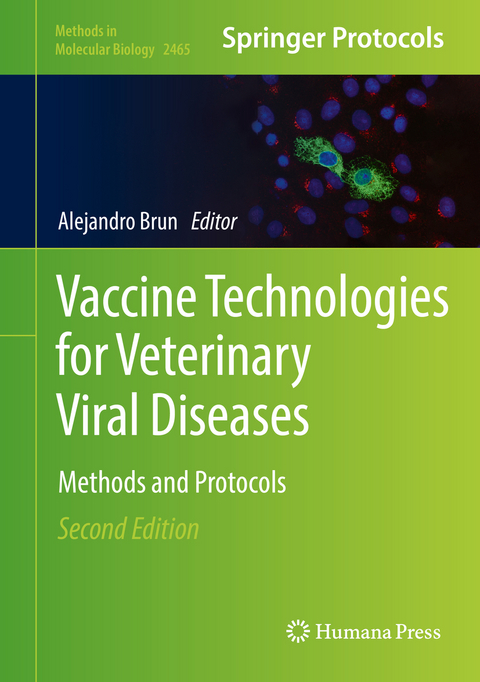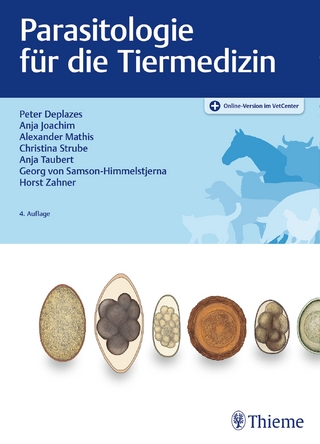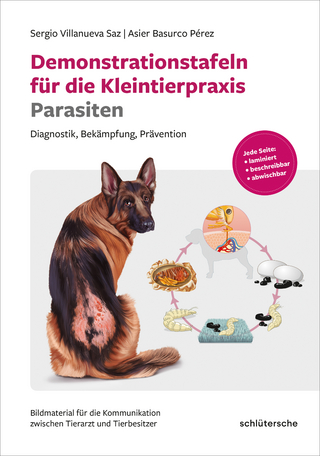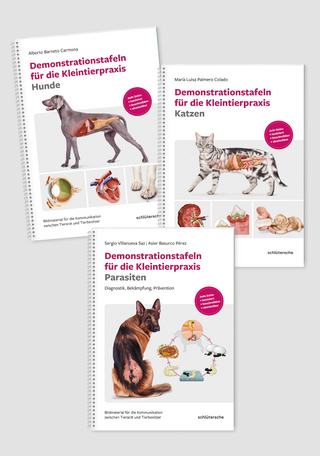
Vaccine Technologies for Veterinary Viral Diseases
Springer-Verlag New York Inc.
978-1-0716-2167-7 (ISBN)
Authoritative and cutting-edge, Vaccine Technologies for Veterinary Viral Diseases: Methods and Protocols, Second Edition aims to be a useful and practical guide to researches to help further their study in this field.
An overview of veterinary viral diseases and vaccine technologies.- Production and purification of candidate subunit vaccines by IC-tagging protein encapsulation.- Elastin‐like polymers as nanovaccines: protein engineering of self‐assembled, epitope-exposing nanoparticles.- Display of heterologous proteins in Bacillus subtilis biofilms for enteric immunization.- Production of influenza H5 vaccine oligomers in plants.- DNA vaccines in pigs: from immunization to antigen identification.- Use of foot-and-mouth disease virus non-coding synthetic RNAs as vaccine adjuvants.- Evaluation of innate lymphoid cells and dendritic cells following viral vector vaccination.- Generation of replication deficient human adenovirus 5 (Ad5) vectored FMD vaccines.- Recombinant modified vaccinia virus Ankara development to express VP2, NS1, and VP7 proteins of Bluetongue virus.- Cloning strategies for the generation of recombinant capripoxvirus through the use of screening and selection markers.- Using Rift Valley fever virus as a vector platform for the expression of ruminant disease antigens.- Generation and characterization of single-cycle infectious canine Influenza A Virus (sciCIV) and its use as vaccine platform.- Reverse genetics for influenza A and B viruses driven by swine polymerase I promoter.- Analysis of the cellular immune responses to vaccines.
| Erscheinungsdatum | 11.02.2022 |
|---|---|
| Reihe/Serie | Methods in Molecular Biology ; 2465 |
| Zusatzinfo | 43 Illustrations, color; 11 Illustrations, black and white; XI, 306 p. 54 illus., 43 illus. in color. |
| Verlagsort | New York, NY |
| Sprache | englisch |
| Maße | 178 x 254 mm |
| Themenwelt | Naturwissenschaften ► Chemie |
| Technik ► Maschinenbau | |
| Technik ► Umwelttechnik / Biotechnologie | |
| Veterinärmedizin ► Klinische Fächer ► Parasitologie | |
| Schlagworte | Antigen production • Delivery strategies • Vaccine Design • Vaccine preparation • Viral vectors |
| ISBN-10 | 1-0716-2167-X / 107162167X |
| ISBN-13 | 978-1-0716-2167-7 / 9781071621677 |
| Zustand | Neuware |
| Haben Sie eine Frage zum Produkt? |
aus dem Bereich


